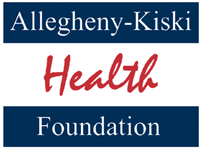Teenagers today are faced with constant pressure, whether to get good grades, excel in a sport, or to fit into a particular crowd of peers. In some cases, feeling overwhelmed by these pressures can lead to various forms of substance use disorder.
If you suspect that your teen might be using drugs or alcohol, here are some of the most common warning signs to look for, as well as resources to find your teen the help he or she needs.
Warning Signs of Substance Use Disorder in Teens
Although not every instance of substance use in teens will present the same symptoms, there are some key clues that you can look for to help you more accurately identify a problem. According to the National Council on Alcoholism and Drug Dependence, these include:
- Bloodshot eyes and dilated pupils
- Sudden weight loss or gain
- Unexplained injuries such as bruises or cuts
- Decline in performance and/or interest in school
- Social withdrawal or changes in relationships with friends and family members
- Change in personality or frequent mood swings
- Lack of motivation
- Feelings of nervousness, anxiety, or paranoia
If you notice any of these warning signs of substance use disorder, it can be helpful to contact a teacher, coach, or other trusted adult who spends time with your teen. Ask this person if he or she has noticed any changes in your child’s behavior, and use this information as a starting point to better understand why your teen might be abusing drugs or alcohol.
Parents can take advantage of the many community resources that the AKH Foundation provides to aid in getting help for their teen.
Resources for Parents
When confronting your teenager about substance use disorder, the better prepared you are, the smoother and more productive your conversation will be. Know that there are a number of community resources available to you as a parent, including frequent programs hosted by the Allegheny-Kiski Health Foundation, as well as as its acclaimed DVD, “Heroin: Lives Forever Changed.” You can also reach out to the AKH Foundation’s community nurses, who can direct you to specific resources pertinent to your teen’s individual needs.






